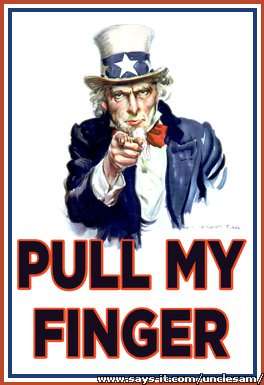Americans Are Less Enthusiastic About War and 'Leaders,' and This Makes David Brooks Sad
He seems to have an archaic great-man view of history, too.

David Brooks' column today may be the most optimistic assessment of the public mood I've ever seen in a major newspaper. He wouldn't call it optimistic—he seems to think he's describing a dystopian hellhole of the mind—but you aren't obliged to agree with him about that.
Brooks starts by noting a recent Pew survey that shows Americans are less enthusiastic than ever about Washington throwing its weight around in the rest of the world. He adds that this doesn't represent a new isolationism: Large majorities favor economic and cultural engagement with other nations, and when it comes to decentralized activism, as opposed to D.C.-based power politics, most of us "have enormous confidence in personalized peer-to-peer efforts to promote democracy, human rights and development."

Now untethered from the Pew poll, Brooks launches into a broad-brush history of American attitudes toward authority. In the wake of World War II, he claims, the country had "a basic faith in big units—big armies, corporations and unions," and it "tended to embrace a hierarchical leadership style." Now "that faith in big units has eroded—in all spheres of life. Management hierarchies have been flattened. Today people are more likely to believe that history is driven by people gathering in the squares and not from the top down. The liberal order is not a single system organized and defended by American military strength; it's a spontaneous network of direct people-to-people contacts, flowing along the arteries of the Internet." In the popular view, "The real power in the world is not military or political. It is the power of individuals to withdraw their consent."
When it comes time to argue against the worldview he has sketched out, Brooks doesn't have much to offer. He says it's "naïve to believe that the world's problems can be conquered through conflict-free cooperation and that the menaces to civilization, whether in the form of Putin or Iran, can be simply not faced." Now, there are several strong arguments to be made against those of us who'd like to see Putin and the mullahs brought down by mass movements of Russians and Iranians rather than by sword-rattling Americans, but You guys think this can be done without conflict is not one of them. The last big wave of these movements was the Arab Spring, and while people have plenty of complaints about how that went down, I don't think anyone believes it was conflict-free. Except apparently Brooks, who writes as though conflicts are only conflicts if one side is being directed from the Oval Office.
Indeed, he writes as though history itself should be directed from the Oval Office. Here's his final paragraph:

We live in a country in which many people act as if history is leaderless. Events emerge spontaneously from the ground up. Such a society is very hard to lead and summon. It can be governed only by someone who arouses intense moral loyalty, and even that may be fleeting.
"As if" history is leaderless? Is Brooks in thrall to some ridiculous 19th-century Great Man theory of history? Of course history is leaderless. You can't centrally plan history, and if Americans are losing the illusion that you can then that may be the best news Brooks has told us yet. Let him sit there longing for a leader "who arouses intense moral loyalty"; the rest of us can raise our glasses in a toast to ungovernability.


Show Comments (211)